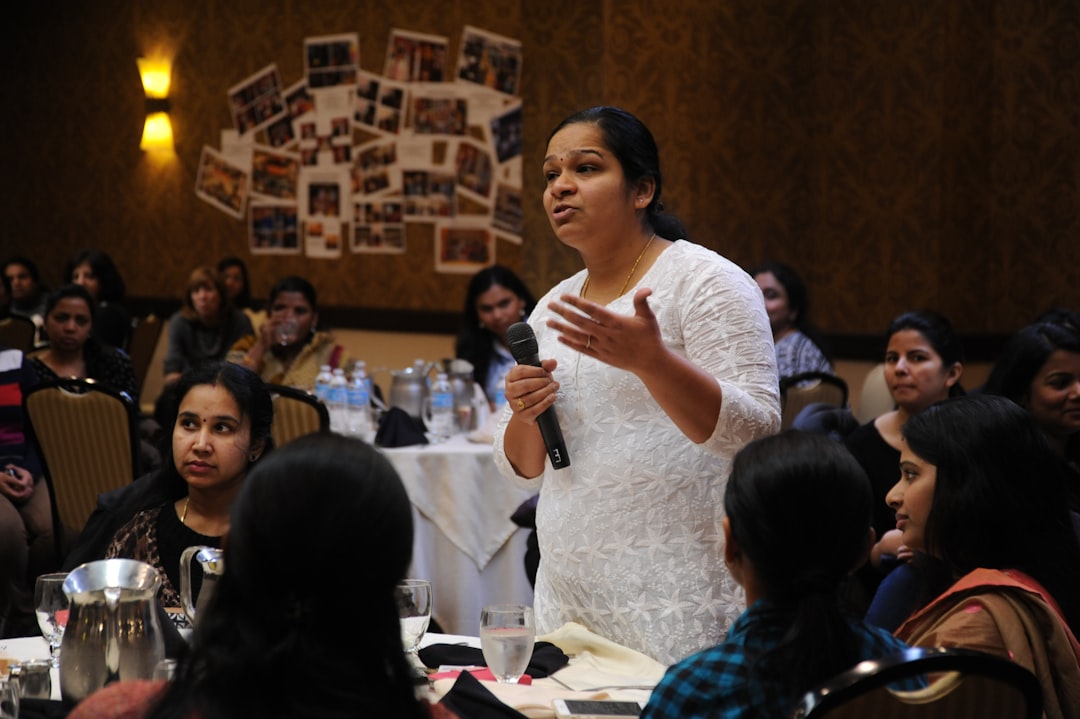In an increasingly interconnected world, understanding global perspectives is essential for fostering effective communication and collaboration across cultures. Global perspectives encompass the diverse viewpoints shaped by cultural, social, economic, and political contexts. They allow individuals to appreciate the complexities of international issues, such as climate change, migration, and human rights.
By engaging with these perspectives, one can develop a more nuanced understanding of global dynamics and the interdependence of nations. For instance, the differing approaches to climate change between developed and developing countries highlight how historical context and economic capabilities influence policy decisions. Developed nations often have the resources to invest in green technologies, while developing nations may prioritize immediate economic growth over environmental concerns.
Moreover, understanding global perspectives requires an openness to learning from others. This involves not only recognizing one’s own biases but also actively seeking out diverse voices and experiences. For example, when discussing global health issues, it is crucial to consider the insights of healthcare professionals from various regions who face unique challenges.
Their experiences can inform more effective strategies for addressing health disparities worldwide. Engaging with global perspectives also fosters empathy, allowing individuals to connect with others on a human level, transcending geographical boundaries. This empathetic approach is vital in diplomacy and international relations, where understanding the motivations and concerns of different nations can lead to more effective negotiations and conflict resolution.
Key Takeaways
- Understanding global perspectives is essential for navigating the complexities of international relations.
- Analyzing historical context provides valuable insights into the root causes of global issues and conflicts.
- Developing critical thinking skills is crucial for evaluating and understanding diverse perspectives on global issues.
- Navigating cultural sensitivity is important for effective communication and collaboration in international relations.
- Applying research and analytical skills is key to making informed decisions and policies in global affairs.
Analyzing Historical Context
To fully grasp contemporary global issues, one must analyze the historical context that has shaped them. History provides a framework for understanding how past events influence current relationships between nations and cultures. For instance, the legacy of colonialism continues to affect political and economic structures in many countries today.
The exploitation of resources and imposition of foreign governance have left lasting scars that manifest in ongoing conflicts and economic disparities. By studying these historical narratives, individuals can better comprehend the complexities of modern geopolitical tensions, such as those seen in regions like the Middle East or Sub-Saharan Africa. Additionally, historical context allows for a deeper understanding of cultural identities and societal norms.
The evolution of social movements, such as civil rights or feminism, is often rooted in specific historical circumstances that shaped public consciousness. For example, the civil rights movement in the United States was not only a response to systemic racism but also influenced by global decolonization movements and the Cold War’s ideological battles. Analyzing these intersections helps illuminate how local struggles are often part of a larger global narrative.
This perspective encourages individuals to recognize the interconnectedness of history and its impact on present-day issues, fostering a more informed and engaged citizenry.
Developing Critical Thinking Skills

Critical thinking is an essential skill for navigating the complexities of global issues and engaging with diverse perspectives. It involves analyzing information, evaluating evidence, and synthesizing ideas to form well-reasoned conclusions. In an age where misinformation can spread rapidly through social media and other platforms, honing critical thinking skills is more important than ever.
Individuals must learn to discern credible sources from unreliable ones, questioning the motives behind information dissemination. For instance, during elections or major international events, propaganda can skew public perception; thus, critical thinkers are better equipped to navigate these challenges. Furthermore, developing critical thinking skills encourages individuals to approach problems from multiple angles.
This multifaceted approach is particularly valuable in international relations, where issues often involve competing interests and complex power dynamics. For example, when analyzing trade agreements, one must consider not only economic implications but also social and environmental impacts. Engaging with diverse viewpoints allows for a more comprehensive understanding of the potential consequences of policy decisions.
By fostering critical thinking skills, individuals become more adept at engaging in constructive dialogue and finding innovative solutions to pressing global challenges.
Navigating Cultural Sensitivity
| Metrics | Data |
|---|---|
| Number of Cultural Sensitivity Training Sessions | 25 |
| Employee Satisfaction with Cultural Sensitivity Training | 85% |
| Number of Cultural Misunderstandings Resolved | 10 |
| Number of Diversity and Inclusion Initiatives Implemented | 5 |
Cultural sensitivity is a crucial component of effective communication in our diverse world. It involves recognizing and respecting the differences in beliefs, values, and practices among various cultures. Navigating cultural sensitivity requires an awareness of one’s own cultural biases and an openness to learning about others’ experiences.
For instance, when working in international teams or engaging with communities from different backgrounds, understanding cultural norms can significantly enhance collaboration. Misunderstandings arising from cultural differences can lead to conflict or alienation; thus, being culturally sensitive fosters an inclusive environment where all voices are valued. Moreover, cultural sensitivity extends beyond mere awareness; it involves actively engaging with and advocating for marginalized communities.
This can manifest in various ways, such as supporting policies that promote equity or participating in initiatives that celebrate cultural diversity.
Such initiatives not only improve workplace dynamics but also contribute to a broader societal understanding of diversity.
By navigating cultural sensitivity thoughtfully, individuals can help bridge divides and promote harmony in an increasingly pluralistic world.
Applying Research and Analytical Skills
Research and analytical skills are fundamental for anyone seeking to engage meaningfully with global issues. The ability to gather information from various sources, critically evaluate its relevance and reliability, and synthesize findings into coherent arguments is essential in today’s information-rich environment. For instance, when addressing complex topics like immigration policy or international trade agreements, thorough research enables individuals to understand the multifaceted nature of these issues.
This process often involves examining statistical data, historical documents, and expert opinions to form a well-rounded perspective. Additionally, applying research skills extends beyond academic pursuits; it is vital for informed civic engagement. Citizens who are well-informed about local and global issues are better equipped to participate in democratic processes and advocate for change.
For example, grassroots movements often rely on research to highlight injustices or mobilize support for specific causes. By utilizing analytical skills to interpret data trends or public sentiment, activists can craft compelling narratives that resonate with broader audiences. In this way, research becomes a powerful tool for driving social change and fostering informed dialogue within communities.
Engaging in Civic Responsibility

Civic responsibility encompasses the duties and obligations individuals have toward their communities and society at large. Engaging in civic responsibility involves active participation in democratic processes, such as voting, advocacy, and community service. It reflects a commitment to contributing positively to society and addressing collective challenges.
For instance, individuals who volunteer for local organizations or participate in community clean-up initiatives demonstrate civic responsibility by taking action to improve their surroundings. Such engagement fosters a sense of belonging and accountability within communities. Moreover, civic responsibility extends beyond local engagement; it includes awareness of global issues that impact humanity as a whole.
Individuals can advocate for policies that address climate change or support international human rights initiatives as part of their civic duty. This broader perspective encourages citizens to think critically about their role in a globalized world and recognize that their actions can have far-reaching consequences. By engaging in civic responsibility at both local and global levels, individuals contribute to building a more just and equitable society.
Pursuing Careers in International Relations
Careers in international relations offer opportunities to engage with pressing global issues while fostering cross-cultural understanding. Professionals in this field work across various sectors, including government agencies, non-governmental organizations (NGOs), multinational corporations, and academic institutions. They may focus on areas such as diplomacy, conflict resolution, human rights advocacy, or international development.
For example, diplomats play a crucial role in negotiating treaties and fostering peaceful relations between nations; their work requires not only knowledge of political dynamics but also cultural sensitivity and effective communication skills. Moreover, pursuing a career in international relations often involves interdisciplinary study that encompasses political science, economics, history, and sociology. This broad educational foundation equips individuals with the analytical tools necessary to navigate complex global challenges.
Internships or volunteer experiences with organizations focused on international issues can provide practical insights into the field while building valuable networks. As globalization continues to shape our world, careers in international relations will remain vital for addressing emerging challenges and promoting cooperation among nations.
Contributing to a Diverse and Inclusive Society
Contributing to a diverse and inclusive society requires intentional efforts to embrace differences while fostering unity among individuals from various backgrounds. This commitment involves recognizing systemic inequalities and actively working toward dismantling barriers that marginalize certain groups. For instance, organizations that prioritize diversity often implement policies aimed at promoting equitable hiring practices or creating inclusive environments where all employees feel valued.
Such initiatives not only enhance workplace culture but also drive innovation by bringing together diverse perspectives. Furthermore, contributing to an inclusive society extends beyond organizational efforts; it involves individual actions that promote understanding and respect among different communities. Engaging in dialogues about race, gender identity, or socioeconomic disparities can help raise awareness about social injustices while fostering empathy among individuals from different backgrounds.
Community events that celebrate cultural diversity—such as festivals or educational workshops—can serve as platforms for building connections across divides. By actively participating in these efforts, individuals contribute to creating a society where diversity is celebrated as a strength rather than viewed as a challenge.
If you are pursuing a social studies degree, you may find it interesting to read about the key concepts of Jainism. This article explores the principles and beliefs of Jainism, a religion that emphasizes non-violence, truth, and non-attachment. Understanding different religious and philosophical perspectives can provide valuable insights for students studying social studies. To learn more about Jainism, check out the article here.
FAQs
What is a social studies degree?
A social studies degree is an academic program that focuses on the study of human society and social relationships. It encompasses a wide range of disciplines including history, geography, political science, sociology, economics, and anthropology.
What can you do with a social studies degree?
With a social studies degree, individuals can pursue careers in education, government, non-profit organizations, research, social services, and more. Graduates may work as teachers, policy analysts, community organizers, museum curators, or social workers.
What skills do you gain from a social studies degree?
Students who complete a social studies degree develop critical thinking, research, communication, and analytical skills. They also gain a deep understanding of human behavior, societal structures, and historical contexts.
Is a social studies degree in demand?
The demand for individuals with a social studies degree varies depending on the specific career path. While there may be a high demand for social studies teachers, other career options within the field may have more competitive job markets.
What are the different types of social studies degrees?
Social studies degrees can be obtained at the undergraduate and graduate levels. Common degree options include a Bachelor of Arts in Social Studies, a Master of Arts in Social Studies Education, and a Doctorate in Social Studies. Additionally, some universities offer specialized degrees in specific social science disciplines.
























+ There are no comments
Add yours